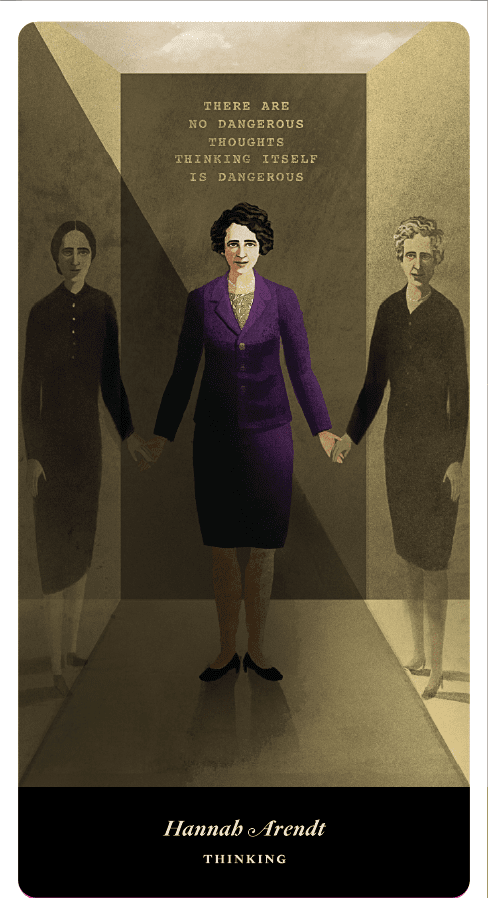Hannah Arendt | There Are No Dangerous Thoughts Thinking Itself Is Dangerous 1906 GERMANY 1975 USA
Hannah Arendt is a philosopher of thinking. She coined the term “banality of evil” to explain how it is possible for ordinary people to commit horrible atrocities without much thought. Indeed, it is precisely because of what she calls “thoughtlessness” that we are capable of engaging in evil acts. Before Arendt, it was common to think of evil as a kind of demonic possession, temporary insanity, a weakness of will, or the consequence of passion—jealousy, greed, hate, or envy. More importantly, evil acts were believed to be accompanied by evil motives. Arendt’s notion of evil breaks radically with this history: she roots evil in a commonplace lack of critical thinking. She finds that few of us have the resources to resist authority because few of us exercise our ability to think independently. To resist evil, she asks us to engage vigilantly in the practice of independent thought, reflection, and judgment— what Arendt calls “thinking without a banister.” Thinking is how we live in peace and openness with ourselves through inner dialogue.

